Zostel's Ambitions
Zostel has grown from 1 hostel in 2013 to 51 properties and 1650+ units today and now, it plans to expand 14x. Could it turn ambitions to reality?

Back in 2013, hostels were on the rise and it was an easy task to find a good budget hostel in most countries. However, if you looked for hostels in India, your search was likely to go in vain. Why? Because India did not have hostels and that is where Dharamveer saw an opportunity.
Dharamveer, along with his 6 friends, started off India’s first chain of backpacker hostels, Zostel, in 2013. What started as a single hostel in Jodhpur with dorms and private rooms has since spread its wings and expanded both, its presence as well as its offerings.
Today, Zostel boasts of 51 properties containing 1650+ units spread across the cities of India and Nepal. To cater to needs of the backpackers and help them explore the beauty of India, Zostel’s offerings have grown from just dorms to include Zostel X, Escape, Passport and more recently, Zo World and Longstays.
And now, Zostel wants to grow more. In fact, Zostel aims to become the second-largest hostel chain in the world and much more, all in the next 24 months.
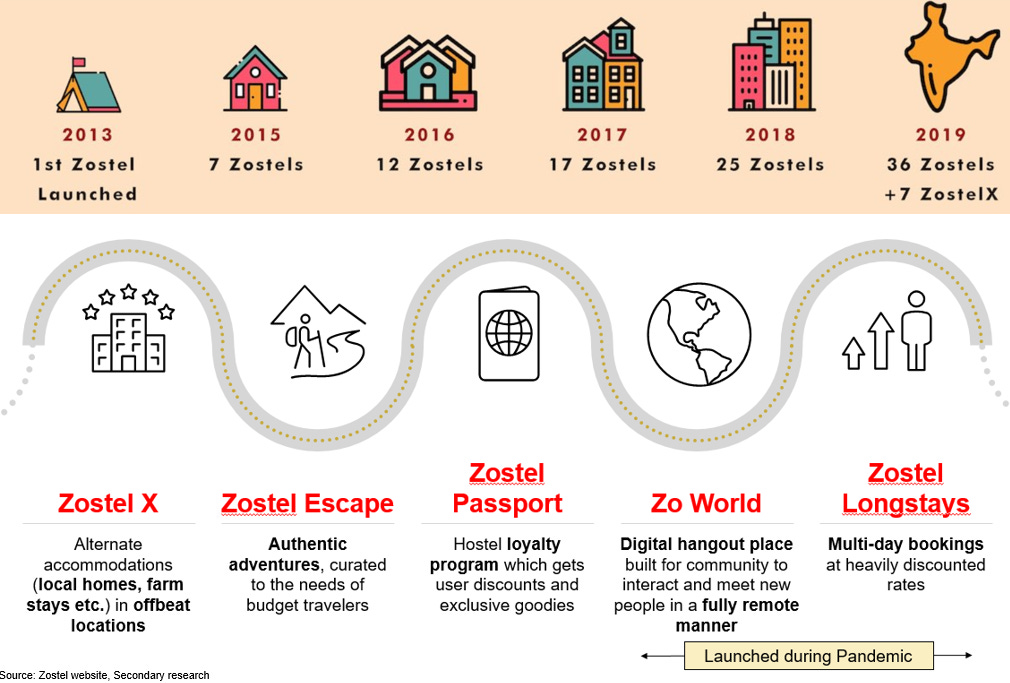
Humble Beginnings
Dharamveer’s family had been in the hospitality business since 1992 and ran a small budget hotel in Rajasthan. Unsurprisingly, Dharamveer developed an interest in the industry too. During his travels while studying in IIM Calcutta, he and his friends found it difficult to find a clean and tidy room within an affordable budget and that is where the idea of starting Zostel was born. The first Zostel was opened in Jodhpur and with funding from angel investors, they soon expanded to 7 hostels by 2015. 2015 proved to be a game-changing year for Zostel hospitality for two reasons- Zo Rooms controversial acquisition and a change in Zostel’s business model.
Changing Pivots
Brand Manager
Till 2015, all hostels launched by Zostel were operated and managed by the company. In 2015, the company changed its pivot from being an operator of properties to being a brand manager. Zostel launched the Entrepreneurship Development Program under which it would train individuals to start their own Zostels who would then independently run them while the company focuses on developing the brand.
The strategy started bearing fruit soon. By 2016, Zostel had launched 5 new hostels. More importantly, the brand identity became stronger.
Backpackers generally rely on websites and word of mouth for designing their itinerary and apt brand management helped Zostel earn a top-of-the-mind recall. Creative campaigns and beautifully designed social media pages helped Zostel attract followers and create fans. The numbers have constantly increased since and Zostel today boasts of 220K+ Instagram followers and an engagement rate of >5%. For perspective, the average engagement rate for influencers and celebrities with >100K followers is <2.4%.
Focus on delighting the customers helped it gain 30K+ reviews with 80% 5-star and 14% 4-star split on Tripadvisor, a 70% repeat rate of the customer and a NPS of 65%.
The brand was developing well enough and that’s when Zostel changed its pivot again. Or at least it tried to.
Online Travel Aggregator
After being the brand manager for long, Zostel realized that people trusted the brand and that is why receiving queries for places where Zostel did not have a property was very common. The team identified an opportunity and in November 2019, Zostel revealed its plans to pivoting to an Online Travel Aggregator model with ‘Trusted by Zostel’ feature, wherein it will list backpacker hostel-like properties and experiences owned by others on the platform. By providing bookings to partners, Zostel would help them with decent business and in return get 10-15% as commission.
“Now, we just might scale to 500 very easily because we will not open those hostels ourselves. We just say these are the 500 best cities in the world or in India. And if you are coming to the Zostel platform to find a hostel in those cities, and we are not there, you have our trusted partners. You can just go ahead and book them.”
- Dharamveer Singh Chouhan, CEO, Zostel
Zostel planned to scale to 500 properties by end of FY20 using the growth in the number of franchisees and the OTA listings but the pandemic threw them off-track.
Now when the country has lifted the lockdown and the economy is recovering, Zostel is back on to its growth plan, albeit, a much bigger one.
Zostel 2.0
Last fortnight, Zostel revealed its plan to expand 14x in the next 24 months for which the company plans to raise 10 Cr at a valuation of 75 Cr pre-money as a Public Unlisted Indian Company.
With an average unit rate of INR 730 and an average occupancy of 54%, Zostel is able to make INR 143K per bed/ year. The operating expenditure per bed being 118.2K leads to per bed earning of 43.8K.
Considering that the Capex per bed is 50K, any new hostel created would have a payback period of ~14 months. In fact, as per Zostel, most of its hostels have a payback period of 8-15 months.
On the face of it, 75 Cr for a hostel chain with 51 properties and such glossy financials, sounds like a very attractive proposition, till we look at their business model.
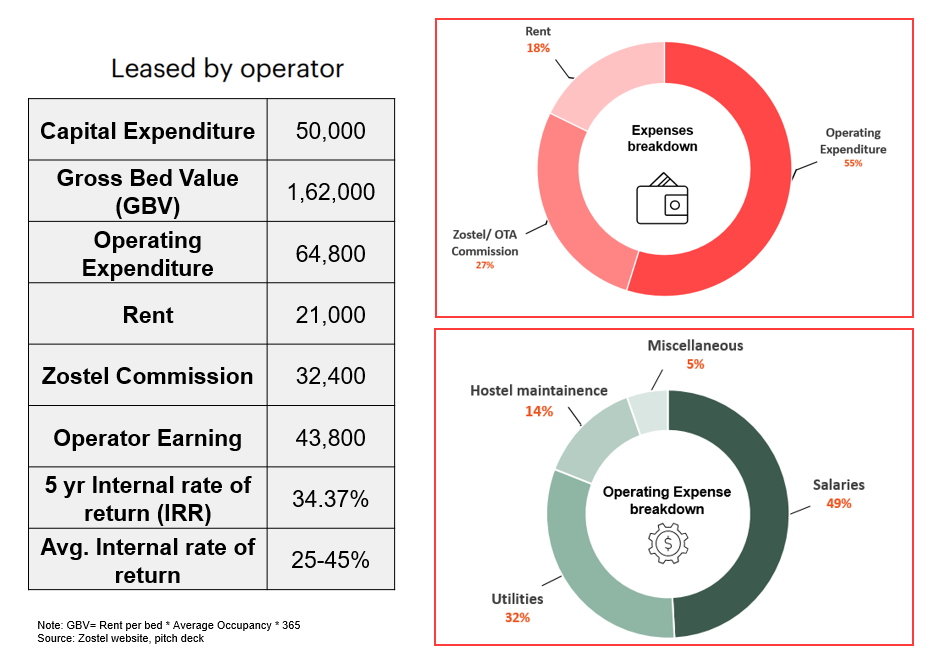
This all sounds attractive until we realize that Zostel is not the operator but a brand manager. Unlike most other big Hostel chains like Generator and A&O hostels which own most of their properties and manage all of their properties themselves, Zostel follows a franchise model wherein it allows local partners to do all the investment and run the show while it takes care of website, revenue management and brand development. For its services, it charges them a 15% commission on each booking made from its platform and a monthly marketing fee.
Thus, while Zostel’s Annual Gross Bed Value is 24 Cr, its annual revenue is merely 4.1 Cr. Considering that Zostel is demanding a pre-money valuation of 75 Crore, the revenue multiple comes out to be 18.3x. For perspective, Generator hostels, the second-largest hostel chain in the world, was acquired in 2017 at a valuation of €450 M when its revenue was €70 M i.e. 6.4x revenue multiple.
The valuation is likely built on the aspirations that Zostel has seen for its future.
Ambitions
While a lot of startups are myopic and define their business narrowly, Zostel defines itself as a company trying to build deeper into the real estate industry.
“And all these years into Zostel, the opportunity has just begun and we will continue building deeper into the real estate industry.”
- Dharamveer Singh Chouhan, CEO, Zostel
When it defines its industry as real estate, the possibilities are limitless.
Zostel already has plans to enter into joint ventures with two renowned players to invest in properties and explore new modules of travel segments. The company wants to offer packages, which take care of the traveller’s end-to-end needs.
“We want to get into offering ticket bookings, intracity travel etc. besides offering different types of stays.”
More importantly, it plans to do all this while remaining focused on its current business. The trajectory that Zostel has defined for itself is that of moving from 42 hostels to 250 and from 1650 units currently to 26708 within 2 years, which ultimately would make it the second-largest hostel chain in the world.
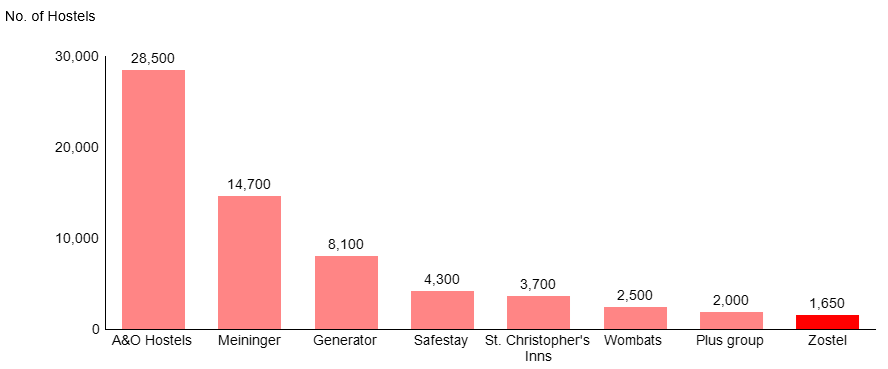
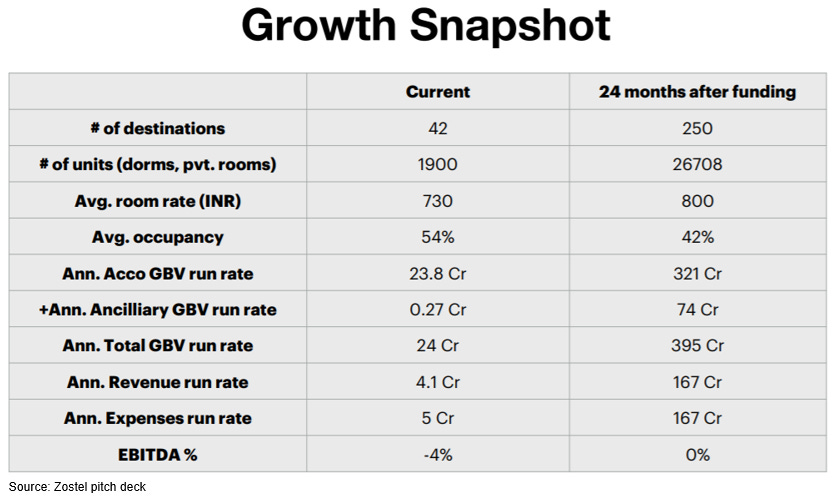
The expanse of opportunities that lie ahead for Zostel are immense, and on some, it has already started mobilizing.
Some days back, the company launched Zo World which literally opens up a new world for the company. Under Zo world, the company has zo.xyz, a digital hangout place built for the community to interact, meet new people and continue to work together in a fully remote manner. This fulfills multiple objectives:
Keeps the spirit of socializing, on which hostels are built, intact by providing one common platform to people
Act as another revenue stream
Company could even use it for guest management in future e.g. guests notify the reception on the platform itself and keys and bed are ready when they arrive
Zostel has also started hiring regional teams, influential locals and evangelists who could ultimately help it move from the current 42 destinations to aspired 250.
Its aspirations can further be seen in the slide below which comes from the deck it prepared for investors:
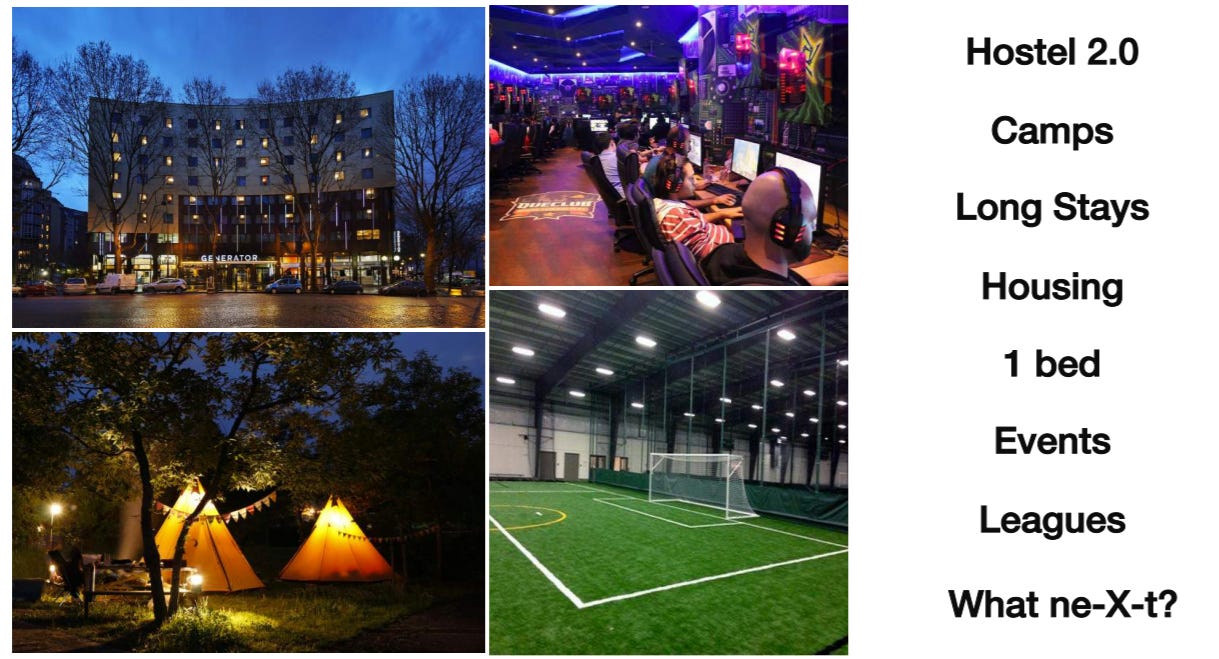
While hospitality as well as real estate industry, is expecting slow growth in demand and analysts are speculating that it would take 2-3 years to reach pre-pandemic times, the plan to grow 14x sounds very ambitious. Zostel’s future would depend on how well it executes it.
That’s it for this week. If you liked the article, do consider subscribing and sharing The Catalyst Analyst with your friends.




Great piece. Looking forward to more such analysis
Terrific explanation! Small question ,what might be the reason for Zostel to follow the franchise model rather than owning the properties themselves?